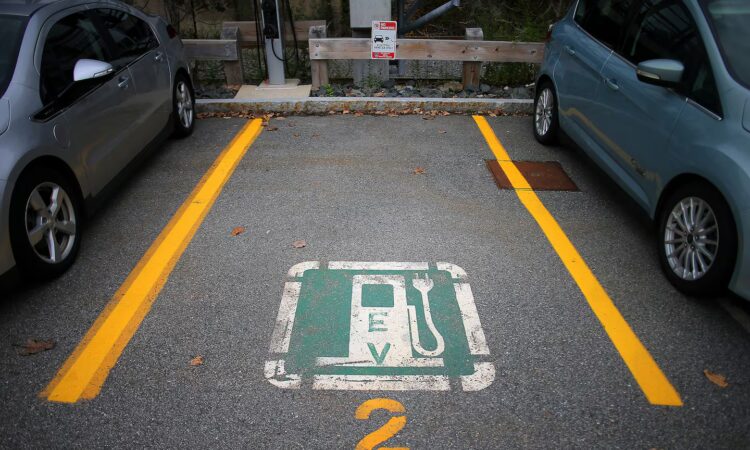
A Massachusetts company has been using federal funds to build a manufacturing facility in Kentucky to produce critical minerals needed for lithium-ion batteries, enough to equip 250,000 electric vehicles each year.
The company, Ascend Elements, recently learned that federal dollars will no longer be arriving — the Department of Energy scrapped the company’s $316 million grant with about $110 million not yet paid out.
That termination of the grant, awarded under President Joe Biden, has made the company one of the latest casualties in the Trump administration’s effort to deal a blow to blue states and the climate projects they support amid a government shutdown that could become the longest in American history.
The scope of those cuts — more than $700 million largely for battery projects — came to light on Monday from reporting by E&E News. The Energy Department told the publication those grants were canceled during the second week of October.
On the same day the government shutdown began, the Energy Department announced that it was canceling an additional $7.6 billion for more than 200 projects across the country, largely targeting companies and projects that support clean energy development.
The cuts could still run much deeper. The Energy Department has compiled a broader list of projects with nearly $24 billion in potential terminations spanning hundreds of projects. The list includes the projects canceled at the start of October.
All of this has caused consternation among scientists, researchers, and business leaders. The uncertainty has left grantees scrambling to adjust their plans and budgets.
The Trump administration has continued to fund oil and gas interests during the shutdown.
The Energy Department did not respond to a request for comment. In a statement to E&E News, a spokesman said the canceled projects “had missed milestones, and it was determined they did not adequately advance the nation’s energy needs, were not economically viable, and would not provide a positive return on investment of taxpayer dollars.”
Several New England awards that appearto have not yet been canceled were on the list as potential future targets. One grant for $10 million is supporting Efficiency Maine, a quasi-state agency, to install heat pumps in hundreds of mobile and manufactured homes. Another, worth about $1.5 million, is helping the town of Yarmouth develop a food waste collection program.
Ascend Elements said in a statement that the government’s decision would not change the battery project’s trajectory. Though construction is paused, the company said it expects to resume work on the facility in 2026.
“Our Kentucky project remains strategic,” said Linh Austin, the CEO of the company, in the statement. He added, “Our business economics are not predicated on grants.”
Wilson Craig, a company spokesman, said Ascend Elements is a “one of its kind” company in the United States.
The company takes decommissioned batteries from electric vehicles and converts them into their component critical minerals.
Craig said there are other companies recycling EV batteries, but they often ship the intermediate product to China for refinement. Ascend Elements is able to complete the entire process domestically.
Ascend Elements said in the statement that it expects to make up the lost federal funding from a mix of other sources, including equity and bond offerings.
The company is facing other financial headwinds. Earlier this year, it agreed to cancel a $164 million Energy Department grant to fund a portion of the project, citing “changing market conditions.” The company was also sued by a contractor that alleged over $100 million in unpaid bills.
Kate Selig can be reached at kate.selig@globe.com. Follow her on X @kate_selig.




